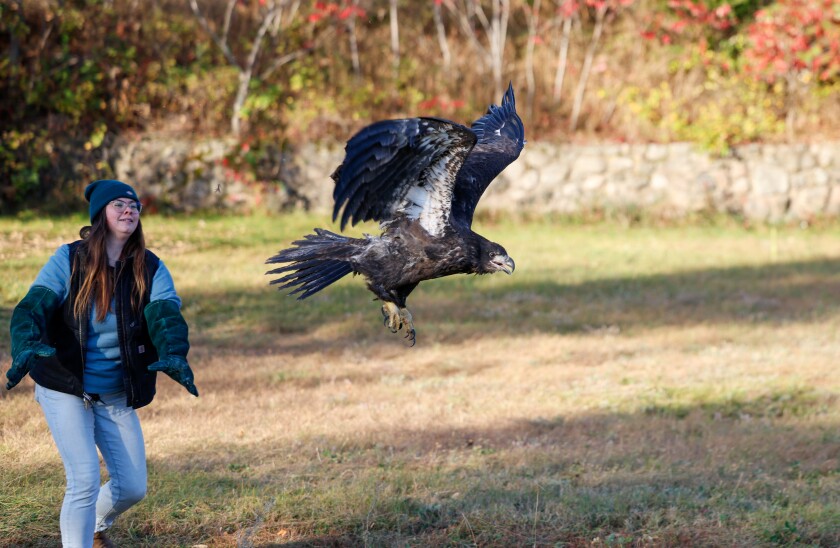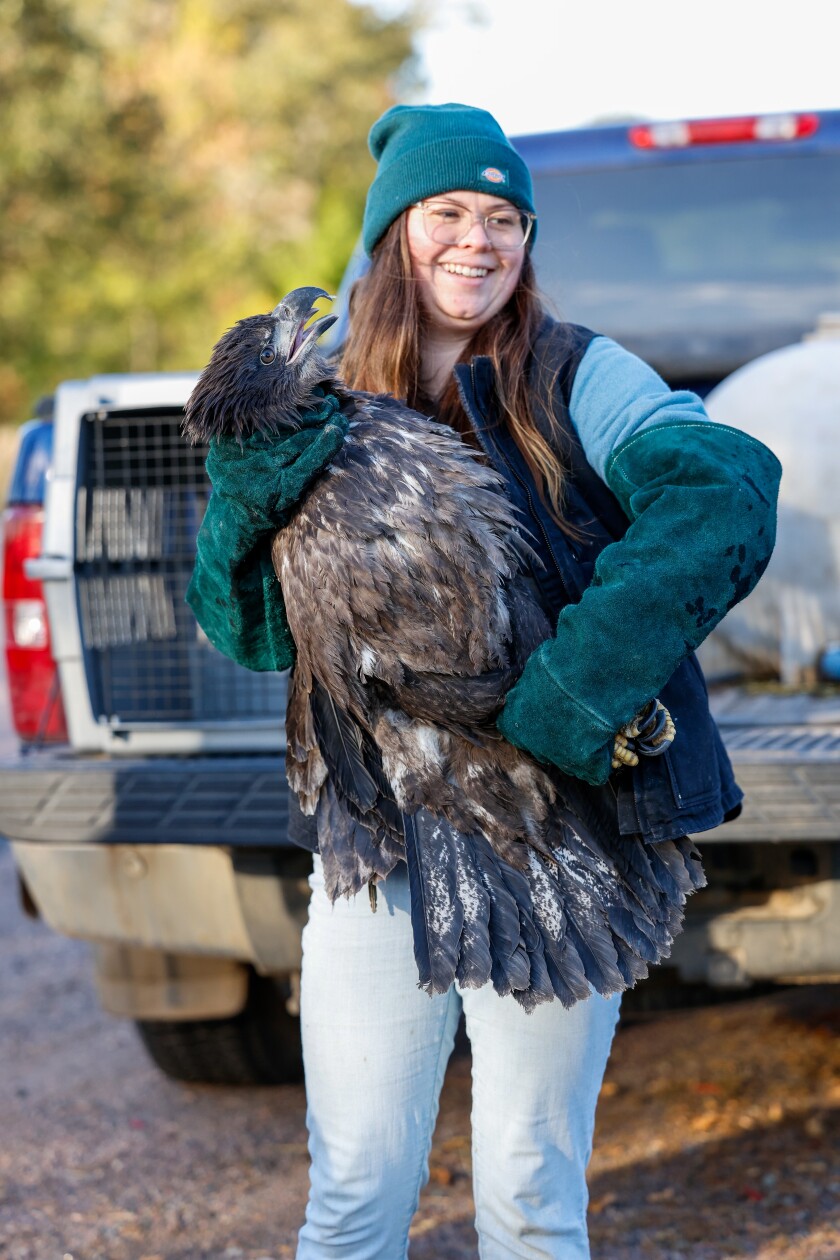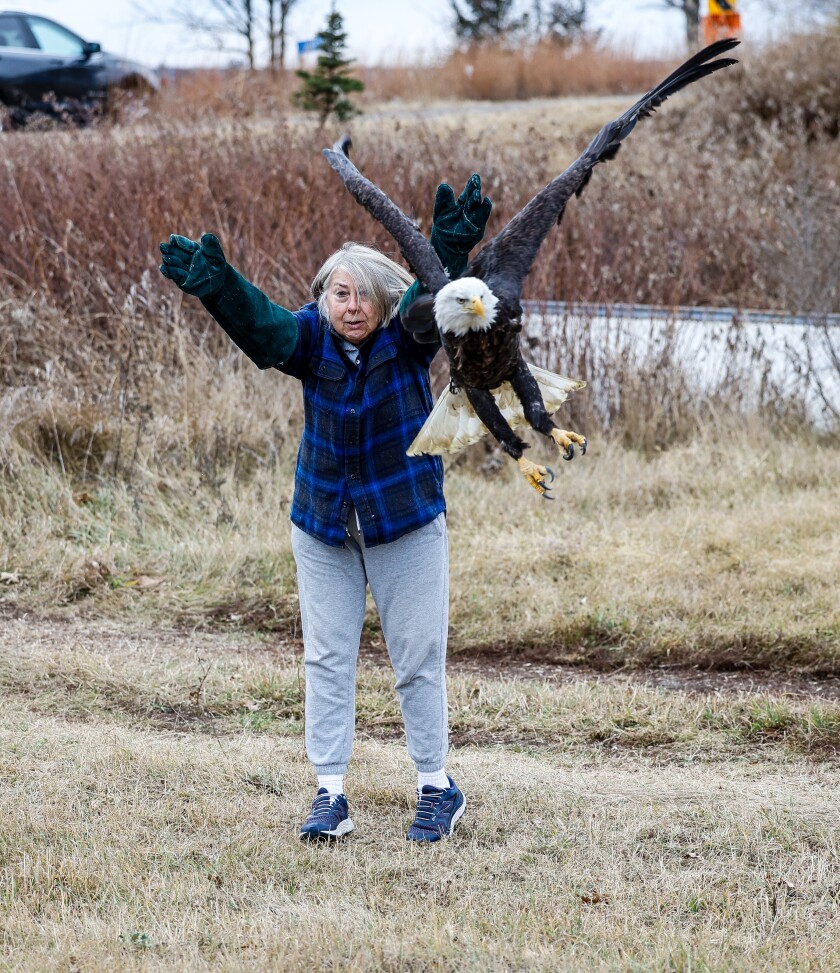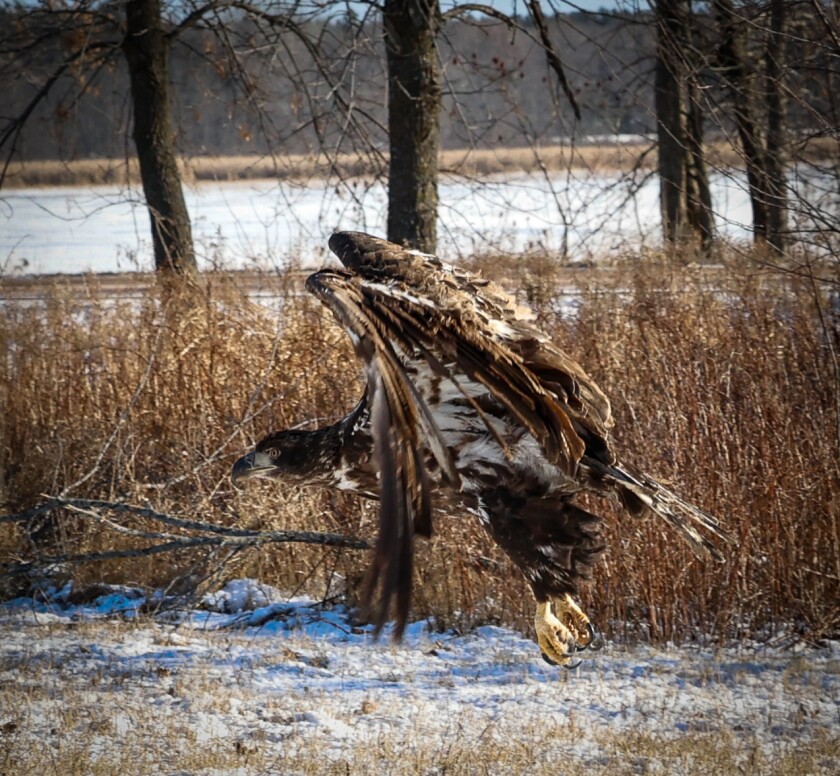GARRISON, Minn. — Looking to help injured animals make a full recovery in the Brainerd lakes area, Wild and Free has helped multiple bald eagles back into the wild this past year.
Wildlife Rehabilitation Organization was started by Dr. Debbie Eskedahl in Anoka County in 1985 and moved behind the Garrison Animal Hospital in 1990 before being able to purchase 17 acres nearby in Garrison in 2004.
ADVERTISEMENT
On Thursday, Dec. 19, Grace Frickenstein, wildlife program coordinator at Wild and Free, said they always take in new animals and have released a handful of bald eagles over the past few months. At one point during the summer, she said they had eight injured bald eagles at their facility.

“For the most part, we get them after some sort of event that injures them,” Frickenstein said. “So whether that's a car collision or, we had one, I think it was around the September time, that came in after a fight with another bald eagle over a fish. So, we do see them pretty consistently throughout the year and it's one of the few animals that we get in the winter.”

Frickenstein said they still have one bald eagle who came to them around July with an injured leg and has slowly been gaining its flying strength back. Though that is a long time for any rehabilitation, she said they hope he can fully recover as it's a very young bald eagle who still has his brown feathers.
“He is by himself right now, but we'll just continue pushing him,” she said. “We typically don't keep animals for longer than about two months. Ultimately, we are still working on him, because we do believe that he will be releasable. He's just taking a little bit longer.”
Though they prefer squirrels, the eagle eats around 15 to 20 mice a day, and since they are the only ones there right now, they get to use the whole 100 feet of the bird enclosure to spread their wings. They are able to keep up with the demand for food thanks to people in the area who drop off mice and roadkill.

Frickenstein said eagles are a sacred species to many native tribes, so any eagles they are not able to save, including any feathers that are dropped while the eagles are being cared for, are packaged up and shipped to the National Eagle Repository.
The works to store and distribute remains of both golden and bald eagles to federally recognized tribes for religious and cultural uses.
ADVERTISEMENT
“It is something that we do not have to do but that we choose to do,” Frickenstein said. “Over the last year, we have sent 21 eagles to the repository for this purpose. In total, up to this point in the year, we have seen 45 eagles, so a little bit more than half are able to be rehabilitated, which is typical for species across the board.”
She said they would take just about any animal at Wild and Free except for skunks, due to their high rabies content, and wolves. that when someone finds an animal, she recommends not immediately going up to it.
With small animals, their mother can leave them to go forage for food and then come back later to grab them.
If anyone is not sure or believes an animal is injured, they can reach out to the Garrison Animal Hospital, which partners with Wild and Free.

“They are going to be your main contact to get in touch with us,” Frickenstein said. “The veterinarians there are our rehabilitators, so they know what's going on, and ultimately, they will either get you in touch with a Conservation Officer who can pick it up or a volunteer from Wild and Free who is willing to go pick it up.”
Those who are interested in becoming more involved or volunteering at Wild and Free can find more information on their website at and the can be reached at 320-692-4180.













